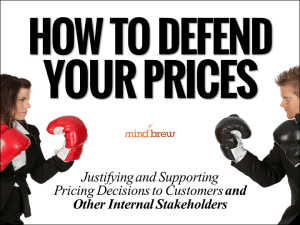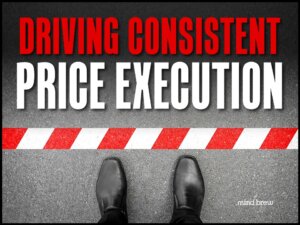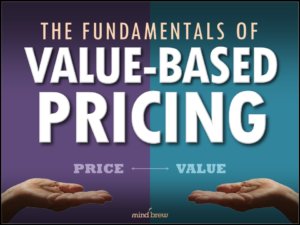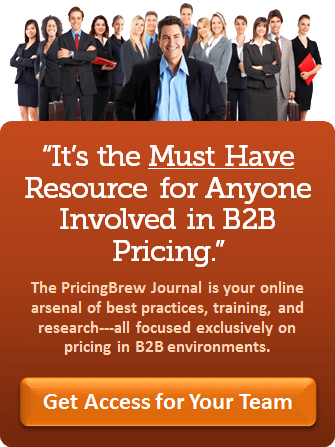Have you ever had an experience where a relative asked you for your expert opinion on a topic, but then they didn’t take your advice? Or even worse, they instead decided to listen to an outsider with far less knowledge and experience than you have.
You could be the world’s leading authority on a given subject—say taxes or personal finance or auto repair or Web design—but if someone has once changed your diapers, they’re going to have a hard time believing what you tell them. Even if other people regularly pay you hundreds of dollars an hour for your time and opinions, your parents and siblings will probably listen to advice from strangers they meet in the grocery store before they listen to you.
It’s just hard to believe that someone that close to home is really an expert.
Something similar often happens in internal B2B pricing discussions. You might speak at conferences and write journal articles and consult with Fortune 500 companies on how to set prices. No matter how much expertise you have, someone inside your own firm is going to object when they see your pricing targets.
Part of the problem is that everyone thinks they understand how pricing works. After all, we all buy things every day. But few people have actually studied the intricacies of the discipline the way you have. Everybody thinks they are experts—when they really haven’t got a clue.
In addition, the other people in the company each have their own perspective and concerns. What makes perfect sense to you may not seem the least bit logical to them. And this disparity can lead to bitter disagreements about a particular pricing decision.
Now, we don’t have a strategy that will get your family to do what you say. You’re on your own there. But we do have a strategy that will help you get your internal stakeholders to accept your pricing decisions.
In this case, the best defense is a good offense.
We recommend avoiding the internal pricing battles by communicating proactively with the key groups within your organization that play a role in pricing. Often this includes the executive team, sales, product, and finance. For each group, you need to come up with a plan to address their concerns before they can raise them. To start, we recommend asking yourself six questions about each group:
- What are their priorities and objectives?
- What are they concerned about or afraid of?
- What do they think or believe about pricing?
- How do they prefer to consume information?
- Are they more analytical or more emotional?
- What role do they play in pricing and when?
Armed with the answers to those questions, you can anticipate potential objections and head them off before they occur. By being pro-active and addressing the root causes of pricing disagreements up front, you’ll save yourself a lot of time and frustration.
Of course, this isn’t the only strategy for effectively defending your prices; there are plenty of others that leading pricing teams have found useful. The webinar How to Defend Your Prices looks at six other techniques that have proven to be effective for convincing internal stakeholders to support your prices. It can help you avoid conflict and, more importantly, educate your colleagues so that the entire company can experience the benefits that come with good pricing.














